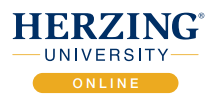How to Become a Healthcare Documentation Specialist in Minnesota

Want personalized recommendations?
Let's match you to the right program

If you are interested in pursuing a career as a healthcare documentation specialist in Minnesota, there are certain key points you should know about this profession.
Article continues after recommendations
Recommended for you
What is a Healthcare Documentation Specialist?
A healthcare documentation specialist, also known as a medical transcriptionist, is responsible for creating written records of medical procedures, diagnoses, and treatments. They transcribe audio recordings made by healthcare professionals into written documents such as medical reports, discharge summaries, and patient histories. Accuracy and attention to detail are essential in this role.
Where does a Healthcare Documentation Specialist work?
Healthcare documentation specialists can work in a variety of settings, including hospitals, clinics, physician's offices, and transcription service companies. Some specialists may also work remotely from home, providing their services online.
What are the requirements to become a Healthcare Documentation Specialist in Minnesota?
To become a healthcare documentation specialist in Minnesota, you will need to meet certain educational and legal requirements.
Education Requirements: Most employers in this field prefer candidates who have completed a postsecondary vocational training program in medical transcription. These programs typically cover medical terminology, anatomy, transcription techniques, and software applications.
Legal Requirements: In Minnesota, healthcare documentation specialists are not required to obtain a specific license or certification. However, many employers prefer to hire candidates who are certified by a recognized professional organization, such as the Association for Healthcare Documentation Integrity (AHDI).
Where can I find Healthcare Documentation Specialist classes in Minnesota?
Dreambound is the largest platform for students to find and compare vocational training programs, including healthcare documentation specialist classes in Minnesota. They offer a comprehensive directory of programs that can help you start your career in this field.
If you are interested in pursuing healthcare documentation specialist training in Minneapolis, MN, Dreambound can help you find classes near you. Visit their website here to explore their available programs and get started on your vocational training journey. You can also find more information about healthcare documentation specialist training in Minneapolis, MN specifically here.
Remember, Dreambound is a valuable resource for finding the right vocational training program to achieve your career goals.
How do I get my Healthcare Documentation Specialist certification?
Becoming a Healthcare Documentation Specialist (HDS) is a great career choice for individuals who have an eye for detail, excellent listening and typing skills, and a passion for the healthcare industry. HDS professionals play a crucial role in ensuring accurate and timely medical documentation, which is essential for patient care, insurance claims, and legal purposes.
To become a certified Healthcare Documentation Specialist, you need to complete the necessary education and training, gain practical experience, and pass a certification exam. Here are the steps to help you get started on your journey to becoming a certified HDS:
-
Education: The first step towards becoming a Healthcare Documentation Specialist is to acquire the necessary education. While a high school diploma is usually the minimum requirement, most employers prefer candidates who have completed a post-secondary program in medical transcription or healthcare documentation. These programs are typically offered by community colleges, vocational schools, and online institutions. The curriculum includes courses in medical terminology, anatomy, physiology, pharmacology, medical transcription techniques, and computer skills.
-
Training: After completing your education, it is crucial to gain practical training and experience in the field of healthcare documentation. Many training programs offer internships or externships to provide hands-on experience in transcribing medical reports, dictations, and other healthcare-related documents. This training period allows you to apply the knowledge you gained during your education and develop the necessary skills required for the job.
-
Certification: While certification is not always mandatory to work as a Healthcare Documentation Specialist, it can greatly enhance your job prospects and earning potential. The Association for Healthcare Documentation Integrity (AHDI) is the leading professional association for medical transcription and healthcare documentation professionals. They offer the Registered Healthcare Documentation Specialist (RHDS) and Certified Healthcare Documentation Specialist (CHDS) certifications.
-
RHDS: The RHDS certification is designed for entry-level professionals who have recently completed their education and training. To be eligible for the RHDS certification, you must have graduated from an AHDI-approved medical transcription program or have at least two years of experience in acute care transcription. The certification exam consists of multiple-choice questions and requires a passing score of 75% or higher.
-
CHDS: The CHDS certification is intended for experienced professionals who have a minimum of two years of acute care transcription experience and hold the RHDS certification. The CHDS certification exam is more comprehensive and challenging than the RHDS exam. It covers topics such as medical terminology, anatomy, physiology, disease processes, pharmacology, and grammar. A passing score of 80% or higher is required to achieve the CHDS certification.
-
-
Continuing Education: Once you have obtained your certification as a Healthcare Documentation Specialist, it is essential to stay up-to-date with the latest industry trends and advancements. AHDI offers various continuing education opportunities, including webinars, workshops, conferences, and online courses. Continuing education not only helps you maintain your certification but also allows you to expand your knowledge and skills, making you a more valuable asset in the healthcare documentation field.
Get courses selected just for you
Try our powerful search engine
Article continues after recommendations
How do I get a job as a Healthcare Documentation Specialist?
After obtaining your certification as a Healthcare Documentation Specialist, you are ready to embark on your career journey. Here are some steps to help you find a job as a Healthcare Documentation Specialist:
-
Resume and Cover Letter: Prepare a well-written resume and cover letter that highlight your education, training, certification, and relevant experience. Tailor your resume to the specific job requirements, emphasizing your skills in medical transcription, knowledge of medical terminology, and proficiency in using transcription software and tools.
-
Job Search: Utilize job search platforms, such as online job boards, professional networking websites, and healthcare industry websites, to find job openings for Healthcare Documentation Specialists. You can also reach out to local medical transcription companies, hospitals, clinics, and physician offices directly to inquire about job opportunities.
-
Networking: Networking is an essential part of any job search. Connect with professionals in the healthcare industry, such as medical transcriptionists, healthcare administrators, and healthcare providers. Attend industry events, join professional associations, and participate in online forums and communities to expand your network and learn about potential job openings.
-
Interview Preparation: Prepare for job interviews by researching the company or organization you are applying to. Familiarize yourself with their mission, values, and services. Practice answering common interview questions and be prepared to provide examples of your skills and experiences that demonstrate your suitability for the role.
-
Professional Development: As a Healthcare Documentation Specialist, it is important to continuously improve your skills and stay updated on industry trends. Consider pursuing additional certifications, attending workshops or conferences, and participating in webinars or online courses to enhance your knowledge and expertise.
Career Paths and Opportunities after Becoming a Healthcare Documentation Specialist
Becoming a Healthcare Documentation Specialist opens up various career paths and opportunities within the healthcare industry. Here are some potential career paths you can explore:
-
Medical Transcriptionist: As a certified Healthcare Documentation Specialist, you can work as a medical transcriptionist in hospitals, clinics, physician offices, or transcription service companies. In this role, you will transcribe and edit medical reports, dictations, and other healthcare-related documents. With experience and expertise, you may have the opportunity to specialize in a particular medical field, such as radiology, cardiology, or pathology.
-
Medical Editor: With your knowledge of medical terminology and documentation standards, you can pursue a career as a medical editor. Medical editors review and revise medical documents for accuracy, clarity, and compliance with industry standards. They ensure that medical reports are error-free and ready for submission to healthcare providers, insurance companies, and legal entities.
-
Health Information Management: Healthcare Documentation Specialists can also transition into roles within health information management departments. In these roles, you will be responsible for managing and organizing patient health records, ensuring data accuracy and confidentiality, and implementing electronic health record systems. This career path offers opportunities for advancement into management positions, such as Health Information Manager or Director of Health Information Management.
-
Medical Coding and Billing: With additional training and certification in medical coding and billing, you can expand your career options as a Healthcare Documentation Specialist. Medical coders and billers translate healthcare services and procedures into standardized codes for billing and reimbursement purposes. This role requires a strong understanding of medical terminology, coding guidelines, and insurance regulations.
-
Educator or Trainer: If you have a passion for teaching and mentoring, you can pursue a career as an educator or trainer in the field of healthcare documentation. You can work for educational institutions, vocational schools, or training programs, teaching aspiring Healthcare Documentation Specialists the necessary skills and knowledge to succeed in the profession.
Final Thoughts
Becoming a certified Healthcare Documentation Specialist is a rewarding career choice for individuals interested in the healthcare industry and have excellent attention to detail and typing skills. By completing the necessary education, gaining practical experience, and obtaining certification, you can start your journey towards a successful career in healthcare documentation.
Remember to continuously update your skills and knowledge through continuing education and networking. This will not only help you stay current in the field, but also open up various career paths and opportunities for growth. Good luck on your journey to becoming a certified Healthcare Documentation Specialist!
Dreambound has you covered with a series of detailed guides, each designed for a different city. And if you're elsewhere or considering a move, we've got more guides that might fit your needs.
- Healthcare Documentation Specialist classes near me in Atlanta
- Healthcare Documentation Specialist classes near me in Fresno
- Healthcare Documentation Specialist classes near me in Minneapolis
- Healthcare Documentation Specialist classes near me in Ogden
- Healthcare Documentation Specialist classes near me in Springfield
Exploring different career paths? Dreambound offers in-depth guides to assist you in making well-informed decisions. Explore some of these resources below:

Stephanie Dayak is the go-to person for everything related to automation and integrations at Dreambound. As a Certified Tax Technician turned tech whiz, her sharp eye for detail and passion for efficiency become evident in every project she undertakes. When not solving tech puzzles, she's out exploring the local food scene, cozying up with her dogs, or plugged into a thought-provoking podcast. She's an ardent believer in mixing fun with functionality!



